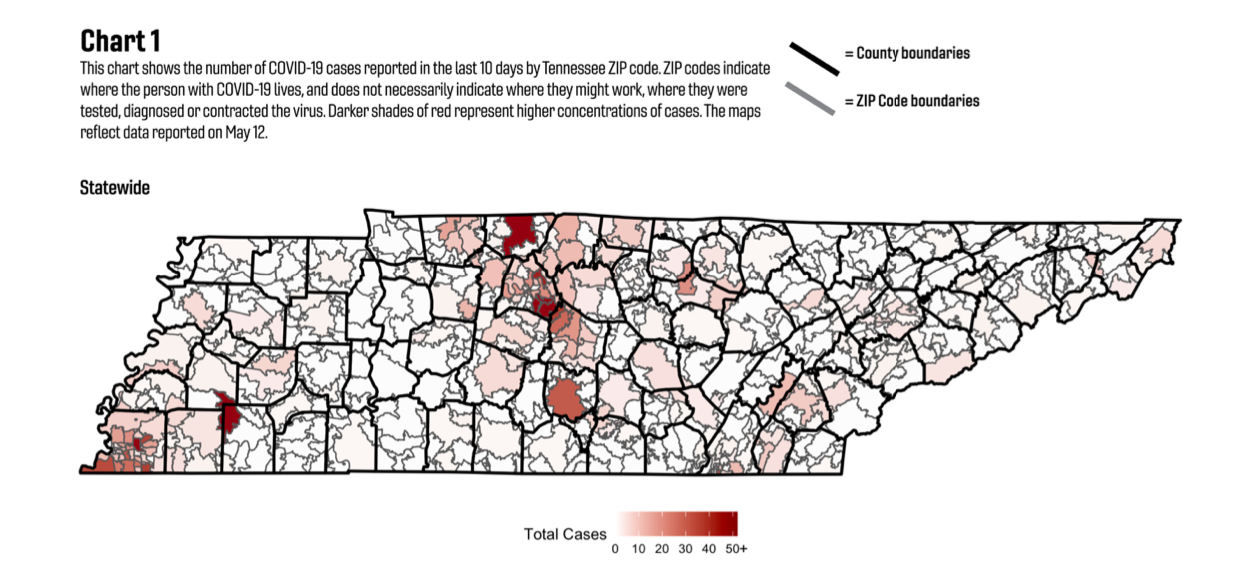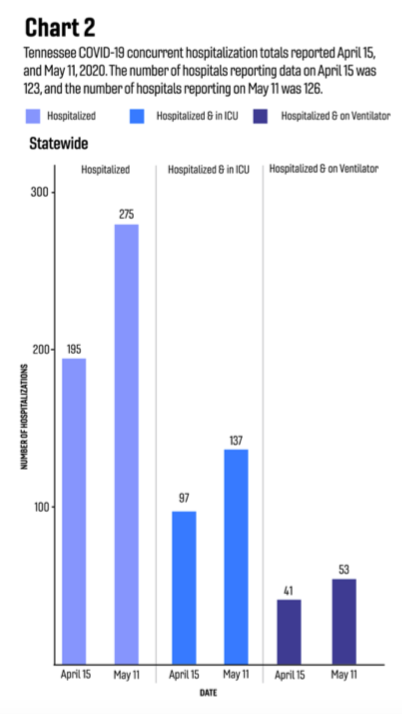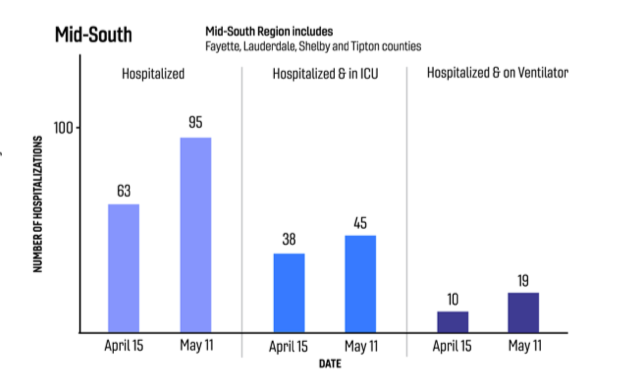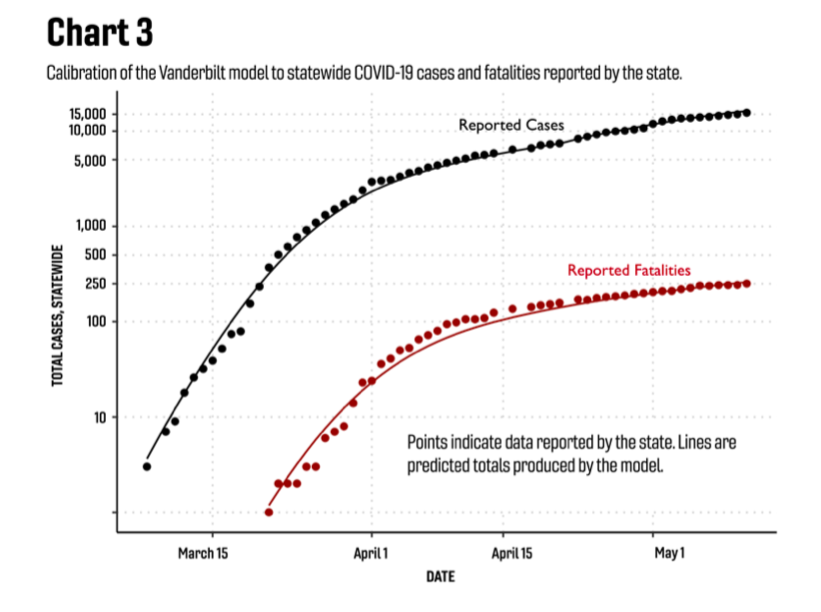 Vanderbilt University
Vanderbilt University
This map shows new coronavirus cases by ZIP code reported over the last 10 days.
Vanderbilt University researchers have downgraded COVID-19 numbers across the state in a new report that shows an improving situation here but does not account for the reopening of the state’s economy.
Two weeks ago, researchers with the school said the state’s virus situation remained “fragile and uncertain.” That report looked ahead at when (or if) the state would need to, once again, close its economy if spikes in the virus returned and hospitals got swamped.
The new report does not contain the words fragile or uncertain. Instead, it shows just how much the data and its model have changed since the first report in early April.
For one, the April report predicted the transmission rate (the number of people infected by one person) would reduce to 1.0 by mid-May. That number was reached — statewide, anyway — by mid-April. Current transmission rates in Memphis and Nashville hover around 1.0, according to the paper. All of this changed their predictions altogether.
 Vanderbilt University
Vanderbilt University
“This effectively reduced the growth of COVID-19, as it meant that cases (and hospitalizations) were no longer growing exponentially,” reads the report (see below for the full report).
This pushed the predicted number of people in the hospital at one time down to around 300. As of May 11, 275 people were hospitalized with COVID-19 across the state, “not to a point of stressing hospital capacity.” Also, earlier models predicted average hospital stays of 14 days. New data shows average stays here are closer to seven days.
 Vanderbilt University
Vanderbilt University
While the state has seen spikes in new cases, no similar spike has been seen in hospitalizations, according to the paper. The researchers said extensive testing in Tennessee is likely the reason the two numbers aren’t more closely linked. That testing has brought new questions.
“The recent changes in testing capacity in Tennessee makes modeling COVID-19 trends difficult because the rise in the number of cases could either reflect improved detection of existing infections as testing capacity increases, evidence of an increase in transmission, or both,” reads the paper. “Teasing apart these factors has been an important focus of our work over the last few weeks.”
 Vanderbilt University
Vanderbilt University
However, the new figures should only be used as a baseline, said the researchers. The virus takes 14 days to incubate, and cases reported this week were likely transmitted two weeks ago, before stores, restaurants, and more were allowed to open.
“Because of this time lag, we believe it is too early to assess the impact of businesses reopening across the state or of more Tennesseans resuming activities outside their homes,” reads the report.
[pdf-1]